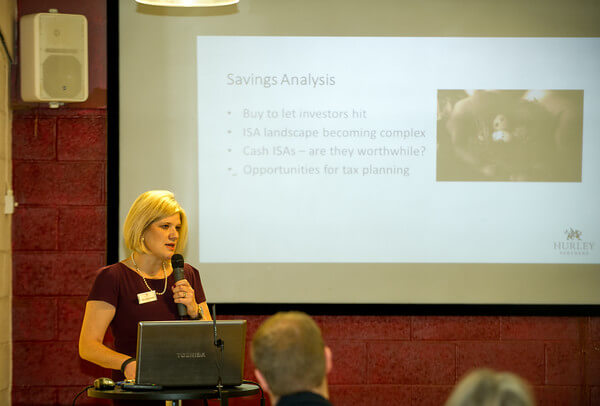Self assessment returns – Don’t miss the deadline !
As you probably know under the self assessment regime as an individual you are responsible for ensuring that your tax liability is calculated, with any tax owing paid on time. We can provide self assessment tax advice if you need help.
The self assessment cycle
Tax returns are issued shortly after the end of the fiscal year. The fiscal year runs from 6 April to the following 5 April, so 2015/16 runs from 6 April 2015 to 5 April 2016.
Tax returns are issued to all those whom HMRC are aware need a return, including all those who are self employed or company directors. Those individuals who complete returns online are sent a notice advising them that a tax return is due. If a taxpayer is not issued with a tax return but has tax due they should notify HMRC who may then issue a return. A taxpayer has normally been required to file his tax return by 31 January following the end of the fiscal year. The 2015/16 return must be filed by 31 October 2016 if submitted in ‘paper’ format. Returns submitted after this date must be filed online otherwise penalties will apply.
Penalties
We provide our clients with self assessment tax advice, handling all the hassle and headaches along the way.
However, for those not so fortunate (i.e. our ‘non-clients’ the prospect of late filing penalties can sometimes loom large.
Late filing penalties apply for personal tax returns as follows:
£100* penalty immediately after the due date for filing (even if there is no tax to pay or the tax due has already been paid)
* Previously the penalty could not exceed the tax due, however this cap has been removed. This means that the full penalty of £100 will always be due if your return is filed late even if there is no tax outstanding. Generally if filing by ‘paper’ the deadline is 31 October and if filing online the deadline is 31 January.
Additional penalties can be charged as follows:
Over 3 months late – a £10 daily penalty up to a maximum of £900
Over 6 months late – an additional £300 or 5% of the tax due if higher
And over 12 months late – a further £300 or a further 5% of the tax due if higher. In particularly serious cases there is a penalty of up to 100% of the tax due.
Calculating the tax liability and ‘coding out’ an underpayment
The taxpayer does have the option to ask HMRC to compute their tax liability in advance of the tax being due in which case the return must be completed and filed by 31 October following the fiscal year. This is also the statutory deadline for making a return where you require HMRC to collect any underpayment of tax through your tax code, known as ‘coding out’. However if you file your return online HMRC will extend this to 30 December. Whether you or HMRC calculate the tax liability there will be only one assessment covering all your tax liabilities for the tax year.
Changes to the tax return
Corrections/Amendments
HMRC may correct a self assessment within nine months of the return being filed in order to correct any obvious errors or mistakes in the return. An individual may, by notice to HMRC, amend their self assessment at any time within 12 months of the filing date.
Enquiries
HMRC may enquire into any return by giving written notice. In most cases the time limit for HMRC is within 12 months following the filing date. If HMRC does not enquire into a return, it will be final and conclusive unless the taxpayer makes an overpayment relief claim or HMRC makes a discovery.
It should be emphasised that HMRC cannot query any entry on a tax return without starting an enquiry. The main purpose of an enquiry is to identify any errors on, or omissions from, a tax return which result in an understatement of tax due. Please note however that the opening of an enquiry does not mean that a return is incorrect. If there is an enquiry, we will also receive a letter from HMRC which will detail the information regarded as necessary by them to check the return. If such an eventuality arises we will contact you to discuss the contents of the letter.
Keeping records
HMRC wants to ensure that underlying records to the return exist if they decide to enquire into the return. Records are required of income, expenditure and reliefs claimed. For most types of income this means keeping the documentation given to the taxpayer by the person making the payment. If expenses are claimed records are required to support the claim.
Checklist of books and records required for HMRC enquiry
Employees and Directors
Details of payments made for business expenses (eg receipts, credit card statements)
Share options awarded or exercised
Deductions and reliefs
Documents you have signed or which have been provided to you by someone else:
Interest and dividends
Tax deduction certificates
Dividend vouchers
Gift aid payments
Personal pension plan certificates.
Personal financial records which support any claims based on amounts paid e.g. certificates of interest paid.
Business
Invoices, bank statements and paying-in slips
Invoices for purchases and other expenses
Details of personal drawings from cash and bank receipts
How we can help
We provide extensive self assessment tax advice and can prepare your tax return on your behalf. We will advise on the appropriate tax payments to make.
Furthermore if there is an enquiry into your tax return, we will assist you in answering any queries HMRC may have.


